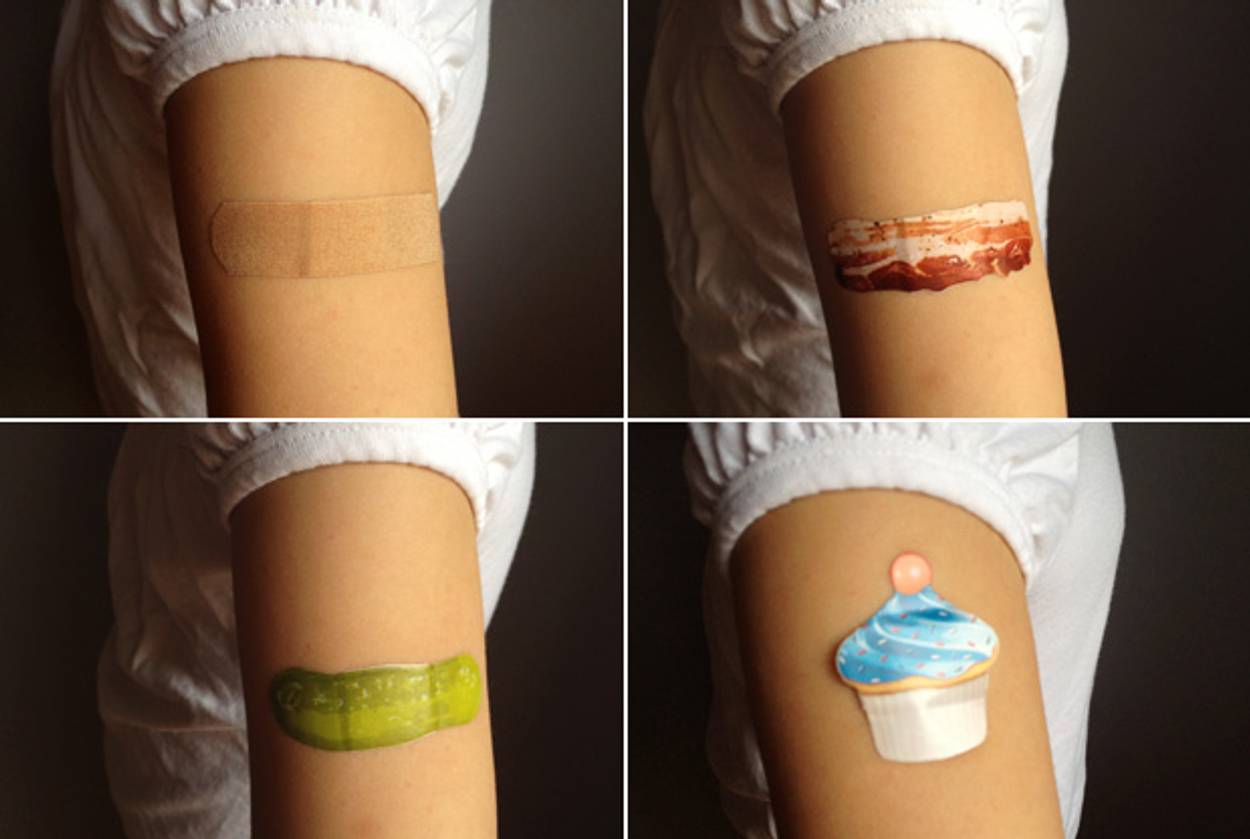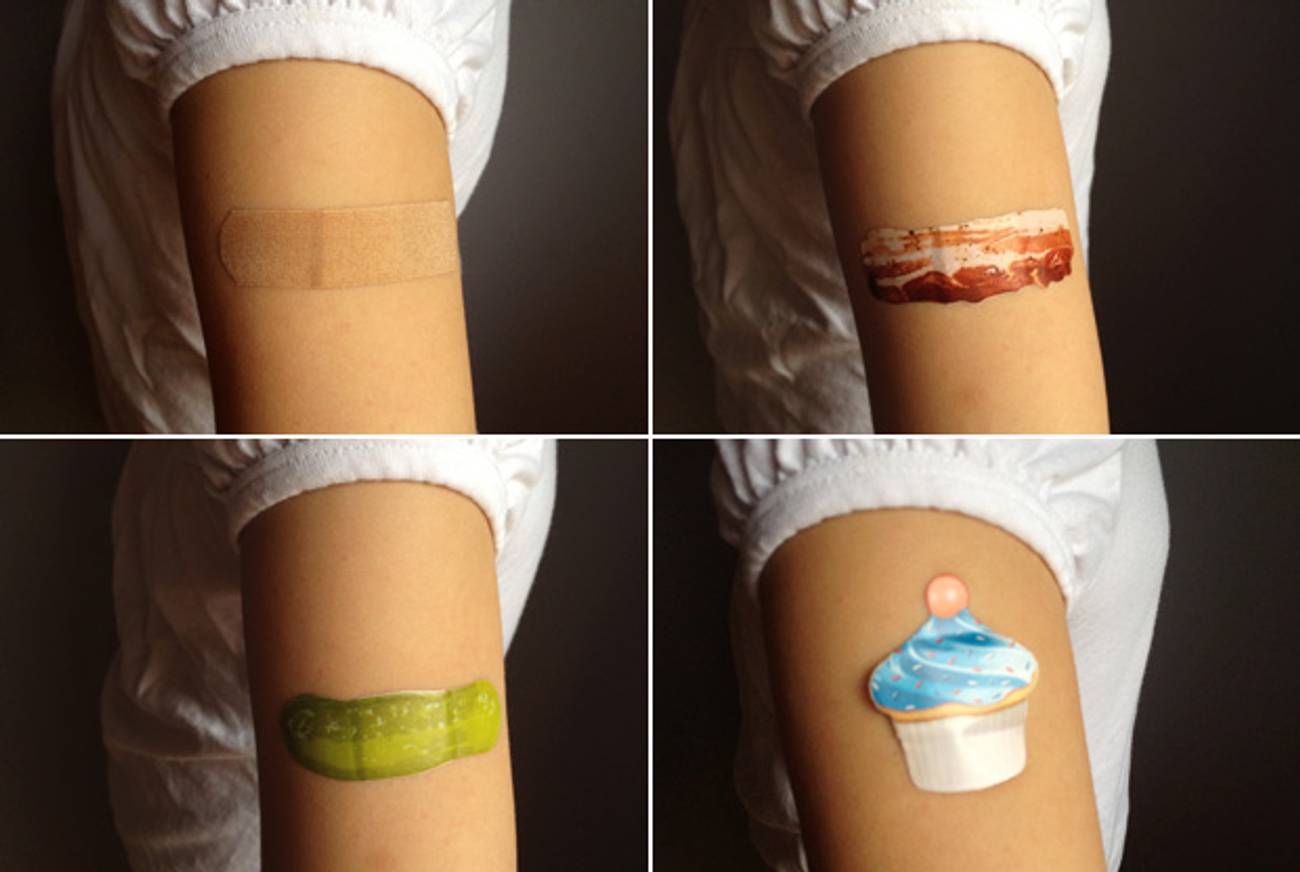Booster Shot for Jewish Values
Jewish teaching and public health agree: Vaccinate your kids. What should be done about the opt-outers?




Last week, we got an email, two printed letters, and a phone call from Josie’s public school, all informing us that unless she got a tetanus booster in the next six days, she would not be allowed to attend classes. I called the school in a panic: Josie had just turned 11 and hadn’t had her annual checkup yet. Too bad, I was told. Rules are rules. No shot, no school. I quickly called the pediatrician’s office, and they assured me that there were a couple of hours every day in which I could bring Josie in to see a nurse, and they’d provide all the paperwork I needed to prove my child was not a tetanus-laden disease vector. And so it came to pass. But I had to miss a morning of work, and Josie had to miss school, just so she could get inoculated at an arbitrary time the school had laid out instead of a month later at her scheduled checkup.
Compare this rigmarole to what goes on in private schools, including Jewish ones. They often allow kids to opt out of vaccines entirely. (Forty-eight states allow religious exemptions from vaccines, and 18 allow “philosophical” exemptions.) A recent survey found that at one Waldorf school in the Bay Area, 84 percent of students were unvaccinated. There have been increasing numbers of major measles outbreaks around the world, including in Orthodox communities. (The one thing a Mill Valley mama in Lululemon leggings and a Bnei Brak matron in shapeless layers and a headwrap may have in common is an aversion to inoculation. Well, that and a tendency to raise backyard chickens.) Measles cases in the United Kingdom have risen by a factor of 10 since 2010, and rates of measles and rubella in the United States are skyrocketing.
But other than a few neighborhoods, like Borough Park and Williamsburg—where parents tend to wait beyond the recommended 12-month window to vaccinate against the most virulent diseases, and where visitors from vaccine-averse ultra-Orthodox communities in Western Europe bring their germs with them to Shabbos dinner—New York City has by and large maintained its herd immunity. New York City, aka The Land of Fuggedaboudit, makes it very hard to opt out of childhood inoculations. A letter from your rabbi or lawyer assuring the Department of Education that your God is a needle-hating God is not sufficient evidence; to get a religious exemption, you have to write an essay explaining exactly how and why your religion forbids vaccines. Furthermore, says the department’s website, “please note that the Public Health Law does not authorize the granting of exemptions based upon personal, moral, secular, scientific, or philosophical beliefs,” Since we hadn’t asked for an exemption, Josie’s school was within its rights to say, effectively, “get a booster shot right now or get the hell out.”
Of course, this law is only enforceable if you send your kid to public school. My upstairs neighbors home-school, so they could choose to skip a variety of vaccines. Why? “We know when he’s sick,” the mom upstairs told the parenting site Babble. The dad, a psychiatrist, further explained that they felt the vaccination process is too stressful for an infant. “We were just building a rapport with him, a sense of trust,” he said. “We had no language to explain to him what was going on.” The wife clarified, “We intuited that it would be traumatic for him.” Another family, living 20 feet away from them, has a newborn; I haven’t been able to intuit whether that new baby (who gets her vaccines on the usual schedule, which means she had no immunity for months) has been traumatized by living two doors away from someone who could give her a potentially fatal disease.
Look, I have several friends who don’t vaccinate. Like my neighbors, they are well-educated people. I have tried to engage with them about why they’ve chosen this path. The standard rap is that parents who skip vaccines foolishly continue to believe the fully discredited study that ran in the medical journal The Lancet a few years ago saying that vaccines can cause autism. But my friends don’t necessarily believe that study. They do believe that no one fully understands how vaccines work, and that the shots can mess with developing immune systems and may be at best unnecessary and at worst dangerous. It doesn’t matter that my evidence comes from peer-reviewed, controlled studies and theirs from anecdotal stories or poorly constructed studies. They do not trust the medical establishment. And that’s that.
On Facebook, I often share news stories about the consequences of our falling herd immunity. My friends then call non-vaccinators selfish, dim-witted jerks. Occasionally a non-vaccinator friend slashes back, but usually the onslaught of opprobrium makes her flee for the soothing embrace of like-minded sites, where she can learn about making her own wool felt and the beauty of placenta.
It does frustrate me, because I’ve seen the consequences of not vaccinating firsthand. As I’ve written elsewhere, my father had polio. When he was 7, he spent six months in bed. He had to learn to walk again. He was left with a gnarled and withered leg and always had a limp.
But pile-ons and hectoring don’t work. “When [a pro-vaccine message] comes as an attack, all it does is increase resistance,” said Goldie Milgram, a rabbi who has written extensively about the Jewish perspective on vaccination. “In communities that may be more alternative—less mainstream Jews and more fringe Orthodox communities—parents are less likely to invest authority in government organizations or drug companies. And they’re not crazy; in the past, important data has been suppressed. Nothing is more precious to these people than their children—a large chunk of my family is ultra-Orthodox, and caring for children is maximal to them—but their sources of information may not be the ones we’d like them to be.”
So, how do we reach non-vaccinating parents where they live? “You respond with empathy,” said Milgram. “You offer respect and concern and consideration for where they’re coming from and then reflect on what kind of strategies to use to make parents aware that they’re putting their children and everyone else’s children at risk.” For the ultra-Orthodox, she said, “this means first you educate the poskim and the rabbis, and publish information in the local newspapers, and create a sequence of stagings in which to provide accurate information and let parents talk about it.”
The textual backup for the initiative is there. Judaism has a clear halachic defense of vaccination. Jewish ethicists have interpreted the words in Deuteronomy, “greatly guard your souls,” to mean we have a moral duty to protect ourselves and others from disease. Reb Nachman of Breslov, who died of tuberculosis in 1810, before there was a vaccine, wrote: “One must inoculate every baby against smallpox before one-fourth of the year, because if not, it is like spilling blood.” Scott Aaron, the community scholar at the Agency for Jewish Learning in Pennsylvania (and a rabbi who is also a lawyer!), said, “It boils down to an issue of pikuach nefesh, saving a life, which is a sacred commandment.” The Shulchan Aruch, the code of Jewish law, says, “It is a positive commandment to remove anything that could endanger life … and to guard yourself and guard your soul. Someone who does not remove that which is potentially dangerous will have set aside this positive mitzvah.”
Tapping into existing community values was exactly what two doctors in Pennsylvania did back in 2007 to increase vaccination compliance in Jewish schools in their area. Today, the schools require vaccines for admission. (If parents still want to opt out, they must get the OK from a state-approved primary healthcare provider, not just any doctor.) And indeed, disease rates have gone down. The physicians’ initiative came on the heels of a teshuvah in 2005 by the Conservative movement about whether a Solomon Schechter Day School could refuse entry to non-inoculated kids. (I interviewed Joseph Prouser, the author of the opinion, for The Forward a few years ago. The answer: Yes.)
But it may be harder to reach the crunchy types than the Orthodox. To defiant patchouli-scented opter-outers, the fact that authorities from all three of the major branches of Judaism have come out in favor of vaccination is irrelevant. To them, their individual liberties and free choice are far more important. “In Judaism, the idea of the community is sacred, but in America we sometimes struggle with the notion of the individual versus the community,” Aaron said. “Americans are very enamored of individual rights, but Jewish law doesn’t necessarily come down as often on the side of the individual as opposed to the community.” If your authority figure is an anti-vaccine blog network rather than a rebbe, you’re going to be harder to win over to the values and virtues of vaccination.
I have to remain hopeful that we’ll still win them over, though I don’t know how. However, the tenor of conversations I’ve been having with my anti-gun-control friends on Facebook in the wake of the horrid Newtown shooting has been inspiring. It’s been respectful. Even my friends who adore guns and have been hostile toward any sort of regulation in the past are now saying they’d be willing to consider an assault-weapons ban, or bans on huge ammo clips, or better background checks. They expressed disgust and dismay with the NRA’s statement last Friday that the solution to school shootings is more guns in schools. I hope it won’t take more deaths of innocents for this same mental shift to happen with vaccines. Regardless, it’s clear that hectoring and shaming are not strategies that work. We need to take a page from the Pennsylvania initiative and try modes of education that do. Yes, I was irked by my kid’s public school’s overzealous response to her lack of a booster shot. But I’ll take it as the cost of doing the business of saving lives.
***
Like this article? Sign up for our Daily Digest to get Tablet Magazine’s new content in your inbox each morning.
Marjorie Ingall is a columnist for Tablet Magazine, and author of Mamaleh Knows Best: What Jewish Mothers Do to Raise Successful, Creative, Empathetic, Independent Children.
Marjorie Ingall is a former columnist for Tablet, the author of Mamaleh Knows Best, and a frequent contributor to the New York Times Book Review.